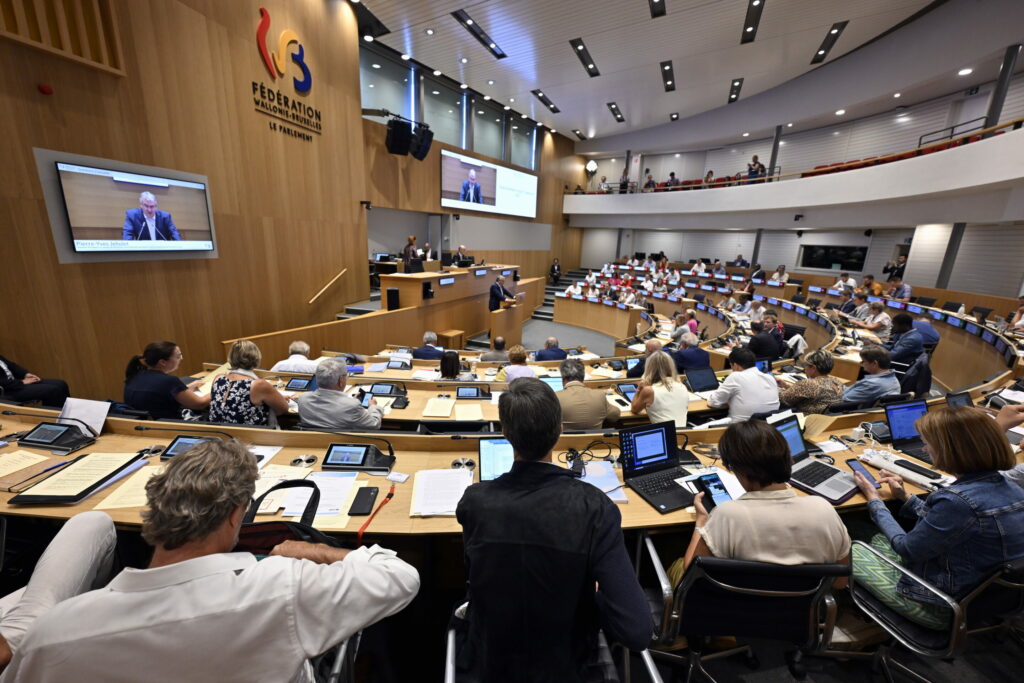Belgium is famed for its political complexity, which in last week's elections drove many to vote for parties promising to simplify the system. A recent study highlighted the unnecessary cost of Belgian federalism, and how this significantly differs per region.
With Belgium's six governments comes an excessively large political workforce. In fact, the country has no fewer than 31,806 politicians and employees sustaining these offices and cabinets, Jean Hindriks, professor of economics at UCLouvain, and Alexandre Lamfalussy, researcher at the statistical analysis institute LIDAM, showed in a study on the figures of federalism in Belgium.
"These figures illustrate the weight, complexity and dysfunction of our political institutions, from the federal level to the local level of cities, municipalities and provinces, including the regional and community level," Jean Hindriks and Alexandra Lamfalussy wrote.
"This multiplication of power levels and political structures entails significant costs and chronic inaction."
Costly affair
The researchers identified 54 ministers and secretaries of state, supported by some 2,000 members of ministerial cabinets. "These cabinets represent a real annual cost of more than €300 million, far more than the official budgets," the researchers noted.
This plethoric structure contrasts sharply with other federal countries. "The Netherlands has 20 ministers and nine state secretaries, while Denmark's Frederiksen II government has 23 ministers."
Researchers also counted 592 Belgian parliament members (MPs). "With 592 parliamentarians spread across several parliaments, Belgium has one of the highest parliamentary densities," the researchers said. "A comparison with other countries of similar size, such as Switzerland, shows that there are too many MPs in Belgium."
Belgian parliamentarians enjoy generous salaries (€8,743 gross) and unjustified "lump-sum" allowances (€2,448 net per month), which according to the researchers leads to "abuse in terms of food and travel expenses". A recent example from Wallonia highlighted how the lack of specific regulations regarding operating costs opens doors to this misuse of taxpayers' money, including it being spent in exclusive restaurants.
Aside from the skyrocketing cost – which a country like Belgium with its mounting deficit cannot afford – the researchers also highlighted the accumulation of mandates and the risks this brings to democracy. "Some MPs have up to 20 mandates and a majority of Federal MPs combine their mandate with a local one. Conflicts of interest are commonplace."
On top of this, there are 10 governors, 42 provincial deputies, 398 provincial councillors, 581 mayors, 2,508 councillors, 13,302 municipal councillors, 9,580 administrators and 2,739 social services councillors. "All this to manage an area of 30,000 square kilometres with a population of 11.7 million."
Regional differences
Belgium started evolving from a unitary state to a federal system composed of three communities (Flemish, French and German-speaking) and three regions (Wallonia, Flanders and Brussels-Capital) in 1970. "The centrifugal force of Belgian federalism fragmented power, making Belgian governance a real administrative and political headache," the researchers said.
Only in Flanders did the community and regional institutions merge quickly, while on the French-speaking side, there is a split between the community and the region. This is reflected in the political representation. For the Flemish community in Belgium, there are nine ministers for 6.8 million inhabitants, while for the French-speaking in Wallonia and Brussels, there are 21 ministers for 4.8 million inhabitants.
"There are twice as many MPs per population in the Wallonia-Brussels Federation (FWB) and Wallonia as in Flanders, and four times as many in Brussels as in the Flemish region."
The study also highlighted that competencies are not grouped with coherence, leading to a "dilution of responsibilities". "On the French-speaking side, unlike in Flanders, compulsory education, higher education and skills training are spread across three different ministries in two different governments."
On the provincial level, the five Walloon provinces employ four times more staff per inhabitant and spend three times more per inhabitant than the five Flemish provinces: €306 per inhabitant compared to €113, respectively, in 2022.
Simplification needed
The researchers stressed that the political institutions' structure requires citizens to understand the mechanisms of the five levels of government, but that this has become impossible. "The fragmentation of powers and dilution of responsibilities in a complex institutional web often leaves Belgians bewildered."
Meanwhile, despite the considerable resources deployed, this system that comes at a high price has not resulted in citizens having more confidence in governments and political representatives above the municipal level. "Our highly complex political system comes at a high price and hardly leads to effective policies."
The researchers concluded that to amplify policy impact, particularly in line with the new challenges ahead, simplifying the political structures is key. Simplified governance is one of the issues that has brought the French-speaking liberals and Christian Democrats (MR and Les Engagés) – parties that are keen to reduce the number of political staff – closer together, post-elections.

